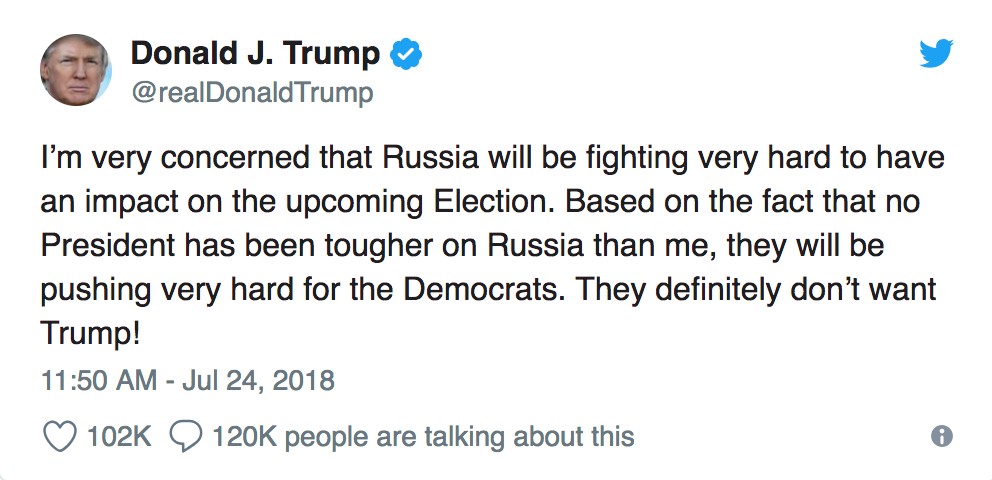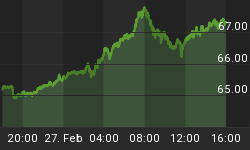Since his election, President Trump has played a hot-and-cold game with America’s intelligence agencies, mostly rejecting their reports about Russian involvement in elections campaign and frequent attacks on U.S. infrastructure.
The back and forth as to what the White House “officially” thinks about Russia and meddling is enough to spin the sturdiest of heads.
After meeting with Putin in Helsinki earlier this month, Trump said he had been given an “incredible offer” to help American investigators in their prosecution of 13 Russian intelligence officers accused of hacking crimes during the 2016 presidential election. However, after returning to Washington, he rejected that offer. It wasn’t the most popular move.
Trump also said he is “very concerned” about Russian meddling, despite previously stating that he didn’t think Russia was still targeting the US and publicly doubting Russian interference on multiple occasions. He did, however, suggest that Russian might help the other side—the Democrats.

(Click to enlarge)
At the same time, U.S. intelligence officials have blamed the Russian government for a campaign of cyber-attacks stretching back at least three years that targeted the U.S. power grid.
Then in February, 13 Russians were indicted by special counsel Robert Mueller, who is leading an investigation being deliberately undermined by the White House.
The following month, the Trump Administration issued a series of punitive sanctions against Russia for coordinating a cyberattack on the U.S. energy grid, aviation systems, and other infrastructure.
The measures also target Moscow for meddling in the presidential elections, which put President Donald Trump in power. Critics have said the White House has been too easy on the Kremlin since the last major U.S. polls. Related: Wall Street Predicting Major Selloff
Last month, the US intelligence community warned that Russia, China, Iran and North Korea are launching daily cyber strikes on the computer networks. They pointed out huge weakness in U.S. infrastructure, saying that dams, traffic controls and power grids can be accessed by anyone.
Critical infrastructure systems are particularly at risk, as the implementation of new technology has significantly expanded the playing field for hackers.
Now, Homeland Security is giving us more details, revealing the techniques used by Russian hackers used to penetrate US critical infrastructure. And it looks like child’s play.
Jonathan Homer, head of Homeland Security's industrial control system analysis says that perpetrators gained access by using the most conventional of phishing tools, tricking staffers into entering passwords.
Spear-phishing emails and watering-hole attacks tricked victims into entering their passwords and then gave hackers access to the corporate networks of suppliers, which in turn let them steal credentials and gain access to utility networks. They weren’t trying to cripple infrastructure—the were fishing for information.
According to Homeland Security, the hackers work for a state-sponsored group known as Dragonfly or Energetic Bear were able to get inside the networks of U.S. utilities to the point that they could have disrupted power service and caused blackouts.
Related: T-Mobile, Nokia Up Ante for 5G In $3.5B Deal
“This is a situation where they went in and said this is what they’re looking for, and found weaknesses there,” Homer said. He added that overall attackers goal was to learn the ins and outs of the US utility networks by posing as “the people who touch these systems on a daily basis”.
The department did not disclose which companies were victimized by the hacks but indicated there were hundreds affected by the breach. Officials believe the hacking campaign is likely still ongoing.
So, for anyone who might still be confused as to whether the Russians are hacking American systems, Homeland Security just removed the ambiguity.
By Michael Kern for Safehaven.com
More Top Reads From Safehaven.com
















